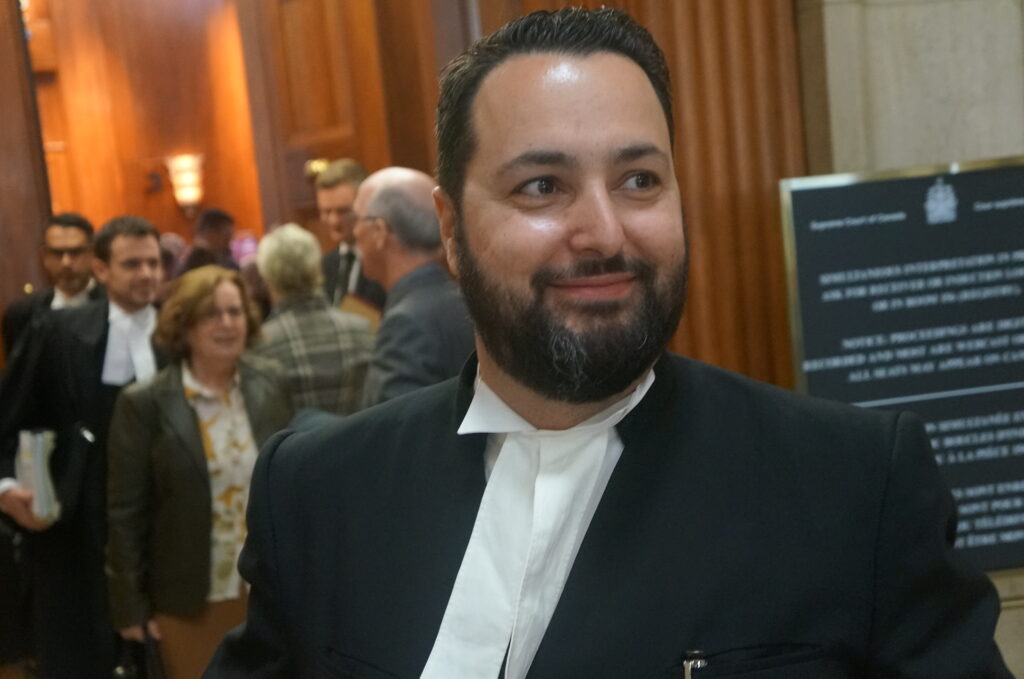On Nov. 2, the Supreme Court of Canada heard religious freedom arguments on whether the courts can adjudicate a religious body’s membership decisions.
The case involves Randy Wall who was expelled or “disfellowshipped” from the Highwood Congregation of Jehovah’s Witnesses in Calgary. As a consequence of being disfellowshipped, he was shunned by members of the faith, including family, friends and clients. He lost a substantial amount of his real estate business as a result. His lawyer Michael Feder told the court the decision “ruined his life.”
At issue before the Supreme Court was whether the courts have jurisdiction to hear the matter. Wall’s lawyer argued the appeal should be dismissed so his case can be heard on its merits. Wall contends he was “denied procedural fairness,” said Feder.
But interveners representing religious freedom argued the courts intervening on matters of membership would violate charter rights of freedom of religion and freedom of association.
“Section 2a of the Charter pertains to religious freedom not only of individuals but also of communities,” said Attorney Albertos Polizogopoulos who represented both the Catholic Civil Rights League and the Evangelical Fellowship of Canada. “Consequently those communities and organizations have the right to maintain their identity and integrity by self-defining.”
Religious individuals congregate together using various “vehicles”, whether in a congregation, a corporate entity, a faith-based school, or charity that is part of the religious mission, he said. “Any threat or any possible interference with that vehicle consequently results in a direct threat or a direct inference to the 2(a) rights of the individuals that may come to that organization or that congregation.”
Polizogopoulos noted that while Wall’s attorney argues they are only asking for the courts to review the process, “the point is the process is ecclesiastical. It is based on doctrine and theology.”
“It’s important to consider the impact a decision of the court on the Highwood Congregation would have on the members of that congregation,” he said. “In my submission, it would be extreme.”
Interfering with the Highwood Congregations decision to discipline a member would “breach a wall” and violate not only the religious freedom of the congregation “but of each and every individual who chose to join that congregation,” Polizogopoulos said.
“The right to autonomy of religious communities is a fundamental principle recognized in international law,” said Attorney Derek Ross on behalf of the Christian Legal Fellowship, a body that has consultative status with the United Nations. “Canada has committed to uphold that principle through its international commitments. The present case demonstrates a need and presents an opportunity to affirm that principle in Canadian jurisprudence.”
“In the event of an internal religious disagreement, the solution is not to coerce a religious community,” Ross said.
UN documents and the European Court of Human Rights have upheld “the principles of state neutrality and religious autonomy,” he said.
They have held these elements are “indispensable for pluralism in a democratic society,” he said.
European courts have also ruled that freedom of religion does not give rise to an individual’s right to dissent within that community, he said. “Religious communities must be free to respond to their own interests in internal disagreements.”
Attorney Jay Cameron, speaking for the Justice Centre for Constitutional Freedoms, pointed out that “Section 2(e) of the Charter protects the collective right to do what one has the right to do alone.”
If the judiciary compels an association to associate against their will, it is “a sham,” because it is “unenforceable,” he said.
Expanding reasons for a judicial review of a private association, is not only a “removal of a brick but of a significant pillar [of a structure] many religious groups rely on,” he said.
If courts do get involved in these religious matters, “this would alter our nation and not for the better,” Cameron said.
Adjudicating who can be a member of a religious group is “no more lawful than to compel an individual to attend a church,” he said.
The courts can become involved if civil rights are engaged, or a legal contract is violated, or if parties in the dispute agree, Attorney Roy Millen argued on behalf of the British Columbia Civil Liberties Association. But when those are not engaged, a “private actor is entitled to make bad decisions or to act in bad faith.
“The state is in no position to be nor should it become the arbiter of religious dogma,” argued David Gnam for the Highwood Congregation.
Justice Rosalie Abella pointed out that Wall contends there’s a property issue, because of his loss of customers.
“There is no right to customers,” Gnam said. “That is not a right that opens the door to jurisdiction.”
He also argued against applying the rules of “natural justice” to religious congregations. “Natural Justice” is a “legal construct” and a secular concept that should not be imposed on religious groups, he said.
“The congregation’s process to review membership is completely religious,” he said.
Gnam said there was a need for the court to be “judicially neutral” and to “recognize a zone of autonomy.”
The Court reserved judgment on the case.

